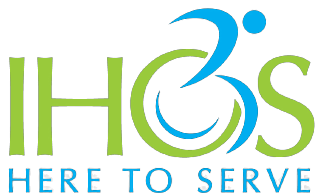As a quality-minded NDIS service provider, our core focus lies in providing psycho-social, intellectual, and physical disability support. One area that significantly contributes to the quality of life for individuals with disabilities is supporting skill development and improving access to employment opportunities.
With the right strategies and resources in place, individuals with disabilities can excel in the workplace, experience greater independence, and participate as valued members of society.
In this article, we will explore the importance of skill development, vocational training, and creating an inclusive work environment to give individuals with disabilities the tools and opportunities they need to succeed in the workforce. By diversifying topics and offering unique insights, we aim to provide valuable information and strategies to encourage skill development, boost employment opportunities, and promote inclusive work environments for those living with disabilities.
1. Vocational Training and Skill Development Programs
Vocational training and skill development programs tailored to the unique needs and abilities of individuals with disabilities provide a solid foundation for their success in the workforce. These programs offer targeted education, training, and practical experiences in a supportive environment, ensuring participants develop the vital skills and knowledge needed for employment.
There is a diverse range of programs and services available, catering to various skill levels, interests, and abilities. These may include specialised training courses, work-placement initiatives, and hands-on workshops, all designed to build specific skills relevant to the chosen industry or profession.
When selecting the most appropriate program, it’s essential to consider the individual’s interests, strengths, and support requirements. By choosing a program aligned with their goals and needs, individuals have the best chance of success in developing valuable workplace skills and confidence.
2. Fostering an Inclusive Work Environment
Creating an inclusive work environment is crucial in ensuring that individuals with disabilities can excel and thrive professionally. This encompasses a variety of strategies, including promoting disability awareness, implementing reasonable accommodations, and fostering strong communication channels to ensure everyone’s needs are met.
Employers have a vital role to play in fostering an inclusive work environment. This can involve undertaking disability awareness training, providing necessary accommodations and resources, and offering ongoing support for employees with disabilities. By proactively addressing challenges and barriers, employers not only create a more diverse and inclusive workforce but also open doors to valuable talent and insight.
Colleagues also have an important role in creating an inclusive workplace. By understanding the unique needs and strengths of coworkers with disabilities, they can actively support and collaborate with one another, fostering a positive and supportive work environment for all.
3. Advocacy and Support for Employment Opportunities
Disability service providers, support networks, and advocacy groups play a significant role in promoting and facilitating employment opportunities for individuals with disabilities. These organisations can offer valuable guidance, resources, and support to help those seeking employment navigate the process and overcome potential barriers.
Services may include assistance with job search, resume writing, interview coaching, and on-the-job support, all tailored to the unique needs and goals of each individual. By providing targeted support and advocacy, these organisations help pave the way to meaningful employment opportunities for those living with disabilities.
In addition, government initiatives and policies, such as the NDIS, play a vital role in promoting, funding, and supporting disability employment services. These policies and regulations ensure that individuals with disabilities have fair and equal opportunities when seeking employment and accessing support services.
4. The Benefits of Employment for Individuals with Disabilities
Employment offers numerous benefits for individuals with disabilities, extending well beyond the financial aspect. A fulfilling job can boost self-esteem, enhance social connections, promote skill development, and foster greater independence.
By engaging in meaningful work, individuals with disabilities can enjoy a greater sense of purpose and accomplishment. The opportunity to apply their unique skills, talents, and abilities to contribute to society can foster feelings of validation, autonomy, and inclusion.
Moreover, the social interactions and relationships built through employment can have a significant impact on overall well-being and quality of life. By working collaboratively with others, individuals with disabilities can form new connections, foster friendships, and further develop their communication and interpersonal skills.
Creating a Brighter Future through Skill Development and Employment
Supporting skill development and improving employment opportunities for individuals with disabilities are essential factors in promoting a brighter, more inclusive future. By offering targeted vocational training programs, fostering an inclusive work environment, and providing advocacy and support, we can create a world where everyone can succeed professionally and experience greater independence.
Creating a supportive and accessible workplace environment not only benefits employees with disabilities but also enriches the entire workforce and business. By embracing diversity, promoting inclusion, and celebrating the unique strengths and abilities of all individuals, we move closer to a world where everyone has an equal opportunity to thrive and excel in the workplace.
To learn more about services for independent living for individuals with disabilities, reach out to our team at Inner Health Counselling and Support today!
